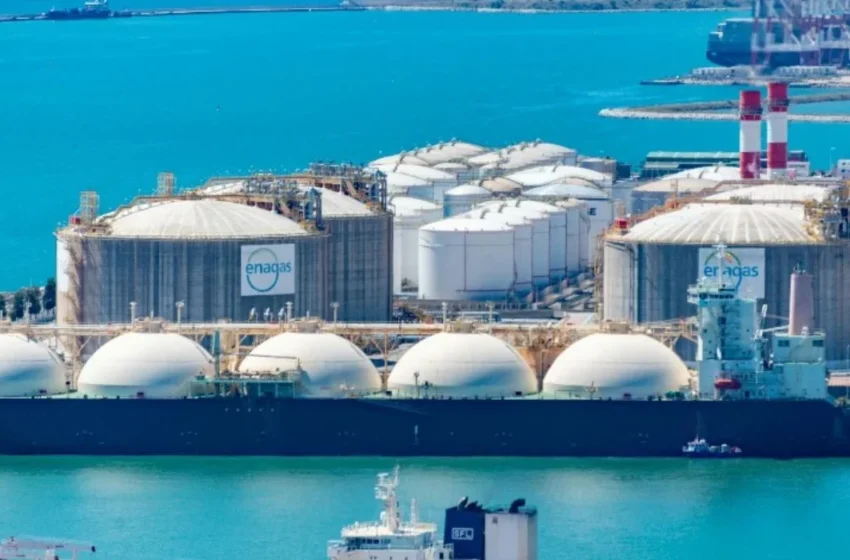
Brussels: The European Union explores strategies to simplify its methane emissions rules for US gas exporters because officials aim to minimize growing trade disputes with the Donald Trump presidential administration.
The Reuters exclusively reported that three sources who are familiar with the matter told the news agency that The European Commission is preparing its proposal for trade talks with the United States in an effort to prevent the implementation of U.S President Donald Trump’s imposed tariffs, with both parties indicating that energy might be included in a wider trade agreement.
Trump consistently emphasizes that the EU must increase its purchases of American petroleum products to decrease its trade surplus with the United States.
European Commission President Ursula von der Leyen indicated the European Union would increase its U.S. LNG imports to reach its goal of stopping all Russian gas supply by 2027.
Why Are Changes Being Considered for Methane Rules?
According to the sources, The European Commission evaluates EU methane regulations flexibility for energy purposes to support U.S.-EU trade talks and this could benefit U.S. LNG exporters through potential benefits.
Sources explain that the implementation of technical regulations must preserve the original legislation to enable U.S. exporters to demonstrate compliance with EU methane standards through equivalent standards and automatically fulfill EU law requirements.
The Commission explores different ways to apply EU methane regulations as part of its energy options review for U.S. trade negotiations according to sources who discuss potential benefits for U.S. LNG exporters.
However, no particular details were provided regarding implementation methods by the sources.
A spokesperson for the European Commission chose not to disclose if they were considering any potential adjustments to the methane law that might favor U.S. LNG exporters. “The Commission maintains an ongoing conversation with industry regarding all pertinent issues related to our legislation,” the spokesperson stated.
Trump’s plans to remove American methane disclosure requirements could make the decision process more complex for the EU as they base their automatic compliance approval on current U.S. regulations.
Methane stands as a vital greenhouse gas which ranks as the second most important greenhouse gas due to its emissions after carbon dioxide. The EU now requires all businesses that import oil and gas into the bloc to follow and document the methane releases from their imported commodities starting from this year.
The EU methane regulation generates competitive advantages for U.S. LNG exports against Russian and Algerian gas suppliers who produce stronger emissions of methane.
Last month, The European Commission organized an online meeting with U.S. LNG companies in their attempt to solve the problems arising from the legislation.
What Were the Methane Rules before Trump’s Tariffs Threat?
The EU methane import laws went into effect in 2025; previously, there were no comprehensive EU-wide methane emissions monitoring and reporting obligations aimed exclusively at imported oil and gas.
All European fossil fuel importers are now compelled by EU law to monitor and report the methane emissions related to their imports starting from this year. According to sources, European importers must prove compliance with EU methane standards before 2027 if they want to sign new procurement agreements with European clients.
Under previous US administrations gas producers received regulations that required methane emission reporting through a defined compliance framework. President Trump has shown signs of reversing the methane emission reporting regulations thus making it harder for US exporters to fulfill EU standards without additional work.
What Tariffs Has Trump Imposed on EU Gas Imports?
President Donald Trump unveiled plans to impose 20% tariffs on all European imports including energy products to lower the U.S trade imbalance. However, Specific tariffs targeting EU gas imports formed part of the threatened measures but their exact rates and implementation aspects remain under discussion without reaching full implementation. The European Commission works on developing proposals against these proposed tariffs as part of ongoing trade negotiations which might make US LNG exports to the EU a central issue for negotiations, the sources said.
Currently, the U.S. functions as the leading supplier of LNG to the EU since European countries started replacing Russian gas after Russia’s Ukraine invasion in 2022.


